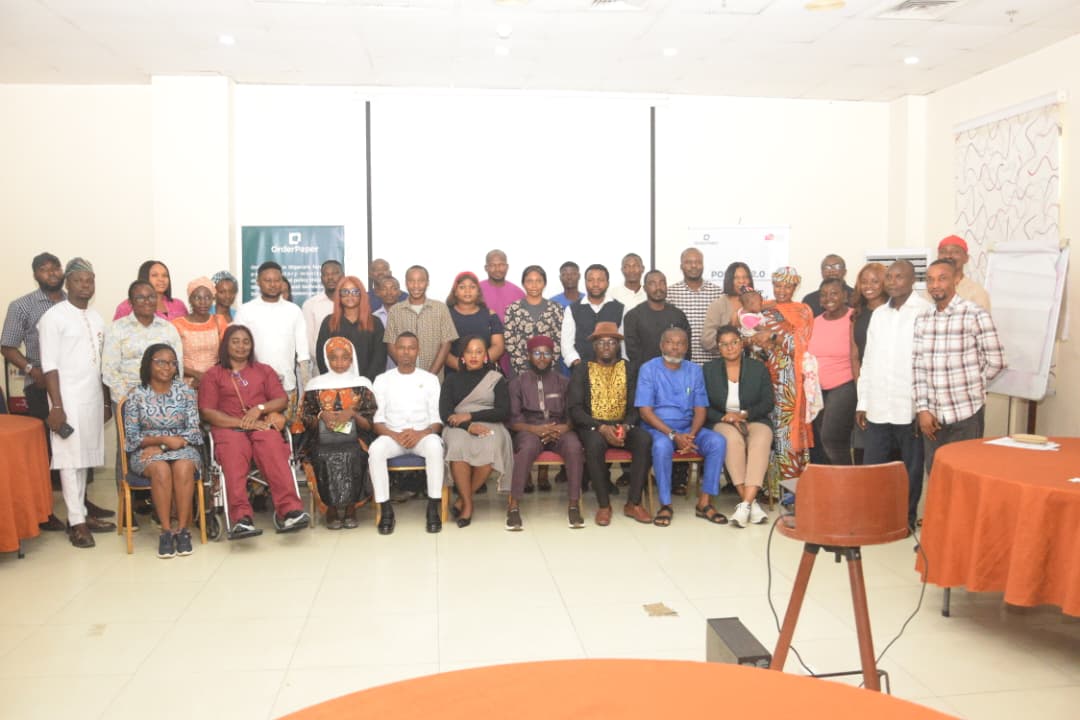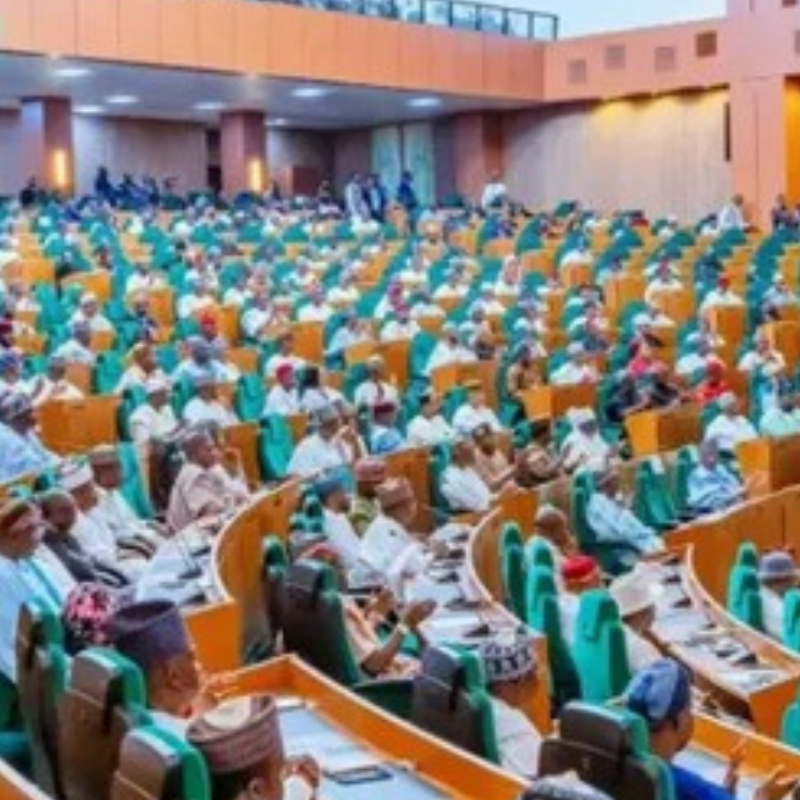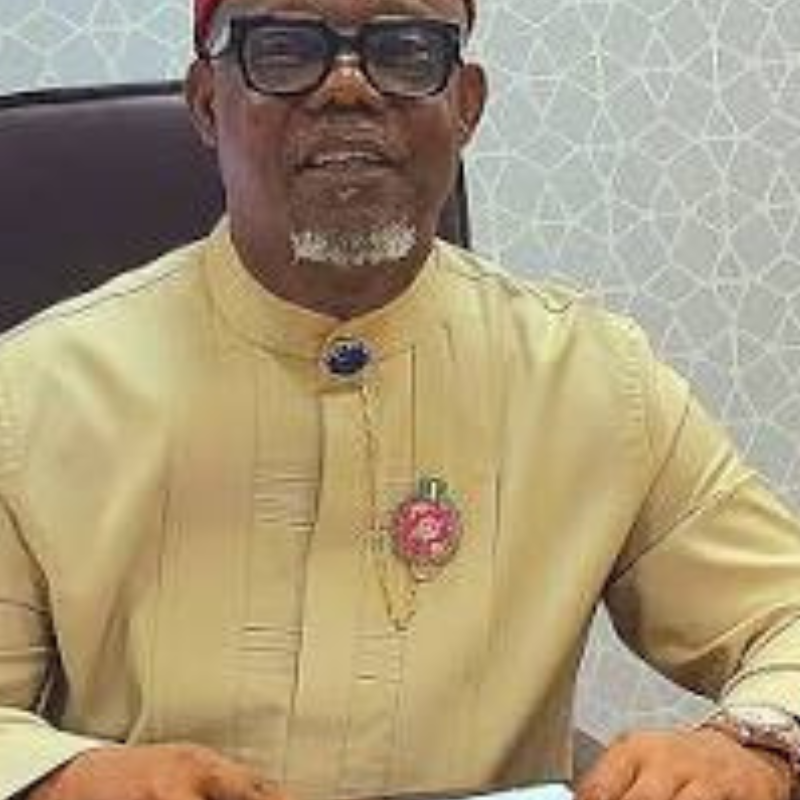Governance expert and Executive Director of #FixPolitics Africa, Anthony Ubani, charges stakeholders on strengthening, transparency and trust through open parliament during the POPULA 2.0 national dialogue

At a time when Nigeria faces one of its deepest crises of public trust, governance expert and Executive Director of #FixPolitics Africa, Anthony Ubani, has declared that “open parliament is not a slogan” but a national imperative for rebuilding confidence in democratic institutions.
Ubani made the statement in Abuja on Thursday while delivering the keynote address at the POPULA 2.0 national dialogue themed “Strengthening Transparency and Trust through Open Parliament.”
The event, convened by OrderPaper Nigeria and and the Nigerian Network of Parliamentary Monitoring Organisations (NNPMOs) under the auspices of the POPULA (Promoting Open Parliament and Upscaling Legislative Accountability), brought together lawmakers, civil society leaders, the media, and governance experts.
POPULA is part of ongoing efforts by civil society to deepen legislative openness and accountability in Nigeria.
Speaking on the topic “Open Parliament as a Tool for Restoring Public Trust,” Ubani warned that Nigeria’s widening disconnect between citizens and government institutions is a direct consequence of long-term secrecy in public decision-making.
“Many citizens feel unseen, unheard, and unprotected by institutions that should guarantee fairness and dignity,” he said. “This crisis did not arise overnight. It is the result of years of poor transparency, weak accountability, and limited engagement.”
He stressed that rebuilding trust requires transforming the culture of governance, starting with the legislature.
According to him, while open parliament has gained visibility in public discourse, it must not be reduced to a catchphrase.
“An open parliament is not a slogan. It is not another project. It is a commitment. It is a culture,” Ubani told participants. “It invites citizens into the democratic process and shows that public office is a public responsibility.”
Ubani described parliament as the “heartbeat of democracy,” noting that its decisions shape laws, budgets, and national priorities.
ALSO READ: POPULA: “Time for African parliaments to be more transparent”
However, he lamented that many Nigerians view the National Assembly as “distant” and “privileged,” a perception that erodes democratic participation.
“When parliament is opaque, the entire system suffers. Cynicism grows — and cynicism is democracy’s greatest enemy,” he warned.
Ubani outlined what he termed the architecture of trust, anchored on three pillars:
“Transparency means that the public can see what parliament is doing. Committee meetings are open. Voting records are published. Budget allocations are clear and detailed. Citizens can track bills, follow debates, and understand positions taken by their representatives. When information is open, mistrust begins to fade.
“Participation means that citizens have a voice in shaping laws and policies. Public hearings must be meaningful. Civil society submissions should influence outcomes. Technology should connect parliament to communities in real time. Democracy grows when citizens are treated as partners, not spectators.
“Accountability means that parliament takes responsibility for its conduct. Members must declare interests. Ethical breaches must have consequences. Oversight must be firm and fair. Parliament must show that public office is not a private advantage, but a public duty.”
“These pillars are simple but powerful,” he added. “When institutions open up, they send a clear message: we have nothing to hide.”
Nigeria Can Lead — If It Chooses To
Ubani cited examples from Kenya, South Africa, Ghana, and Senegal, where reform efforts are improving legislative openness. He said Nigeria must not lag behind, especially as youth disillusionment and institutional distrust deepen.
“We face a generation that no longer believes public institutions can work for them,” he said. “Opening up the National Assembly and State Houses of Assembly will begin to rebuild the bridges of trust.”
A Shared Responsibility
While emphasizing the responsibility of parliament, Ubani also called on citizens and civil society to remain active and constructive.
“Openness only works when it meets an active public. Citizens must use the information available, ask the right questions, and demand accountability.”
He urged participants to treat the dialogue as a springboard for practical actions that move the country beyond theory and promises.
Ubani concluded with a call to action for all stakeholders:
“Trust is the lifeblood of democracy. Without it, even the most beautiful institutions will fail. With it, even the most difficult challenges can be overcome.”
He urged parliament, civil society, development partners, and the media to “move from dialogue to implementation” and build a legislature Nigerians can trust again.
‘Openness Is a Democratic Necessity’
Welcoming participants earlier, Oke Epia, Executive Director of OrderPaper Nigeria, represented by Programmes Manager, Uko Etuk, said the dialogue reflects a “shared understanding that openness is not just an aspiration; it is a democratic necessity.”
“For too long, the disconnect between parliament and the public has been widened by limited access to information, unclear communication, and insufficient avenues for participation,” he said.
Epia praised the growing demand among citizens, particularly young people, women, and marginalised groups, for a parliament that “listens, responds, and delivers.”
He explained that the POPULA project aims to close the trust gap by strengthening parliamentary monitoring organisations and promoting credible, data-driven engagement.
“Your presence is a powerful reminder that trust in public institutions can be rebuilt — but only when we work together,” he concluded.




